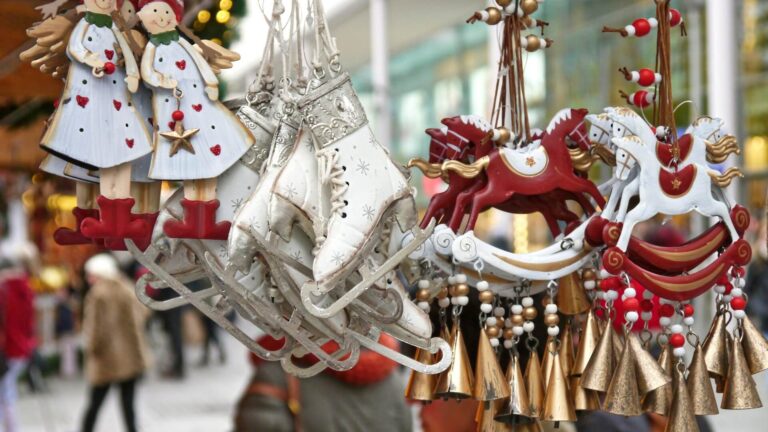
If you need a freelance travel writer or you would like to see your country, city, flight, etc., presented on the blog, drop me an email.
Find our more on Freelance Travel Writer page.
My trip was just in time to see the blossoming trees, a perfect time to explore the many things to do in Čačak Serbia. It was easy to notice how the city becomes vibrant again with another cycle of nature. Lovely fresh flowers were a certain prelude to the rich historical heritage in the background.
FROM BELGRADE: 150 km
FROM NIŠ: 190 km
Join me on another journey through Serbia as I tell you all about things to do in Čačak. I strolled along its streets trying to get the best shot, which was easy given that it was all sunny and blooming.
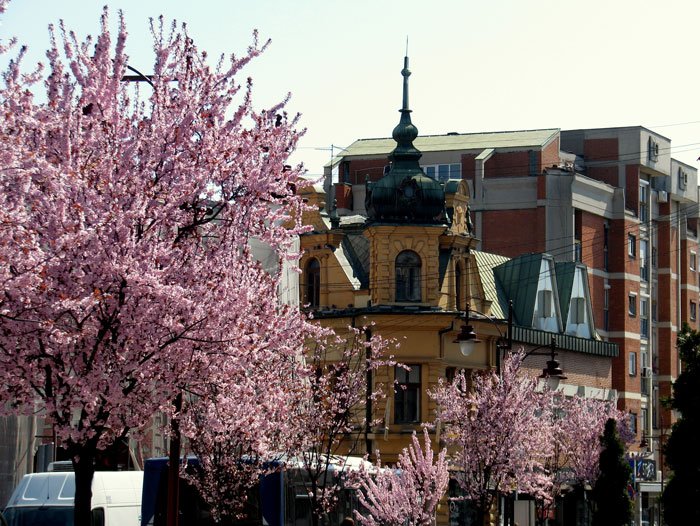
Čačak Serbia
According to archaeological findings and cultural-historical monuments, the area of Čačak has been inhabited since 5,000 B.C. There was a vast settlement here during the Roman rule, and Roman baths remains can still be seen in the city center.
The town is mentioned as part of the Serbian medieval state in the 13th century as Gradac. It was the residential town of Stracimir, brother of the renowned 12th-century Serbian ruler Stefan Nemanja. The oldest written document that mentions Čačak dates to 1408.
The municipality is inhabited by 115,000 people, while the population of the city itself is 73,331.
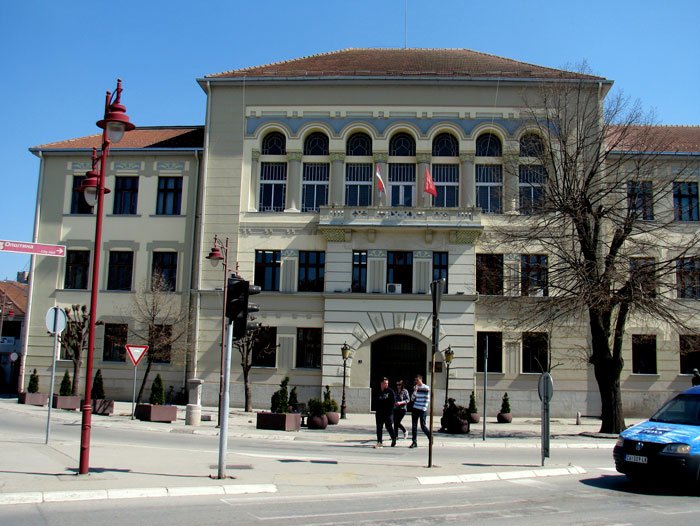
I took a walk with Gordana and Dejan from the Tourism Organization of Čačak. There was a charming school building on our left that Gordana attended, while on our right stood the imposing Čačak high school. Across the street was the church – the same church one can find in the city’s old drawings, though back then with horses and carriages instead of today’s traffic lights and cars.
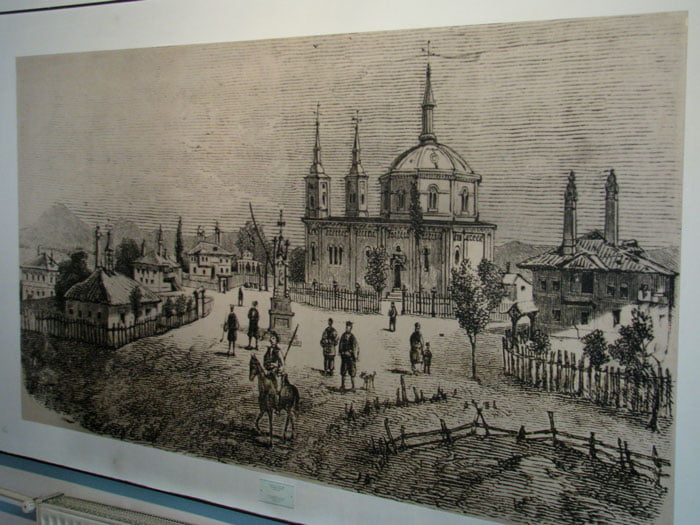
Erected in the 12th century with two bell towers, it also had a built-in minaret at a certain point. The church is Stracimir’s endowment, restored in the 19th century according to the Serbian medieval Raška style, and it should be on your list of things to do in Čačak, Serbia.
View this post on Instagram
A post shared by Turistička organizacija Čačak (@tourist_organization_of_cacak)
This is where two old bells were found buried in the ground. One was inscribed with the name of the person who donated them, while the other stated that these bells were given to this church in 1454. These are among the oldest bells in Serbia.
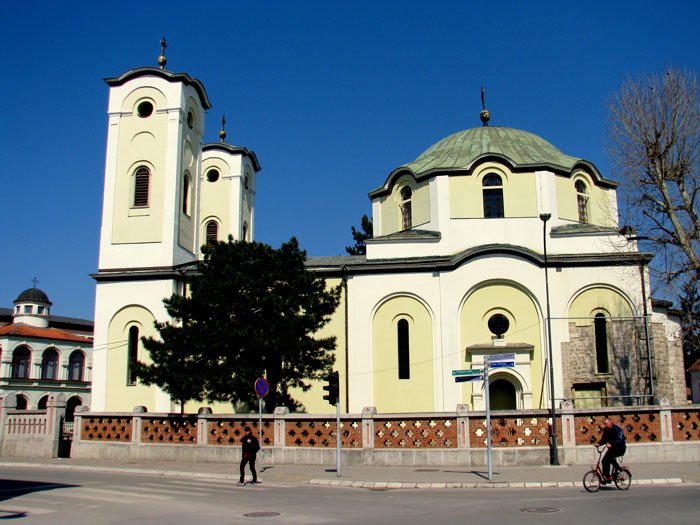
When exploring things to do in Čačak, make sure not to miss the National Museum. It is close to the city center and houses archaeological remains, historical and religious relics, medieval manuscripts, and many other artifacts from various periods. If you are lucky enough to be welcomed by the curator Zorana Bojović, then you’re in for a true step back in time that will take you through interesting historical anecdotes.
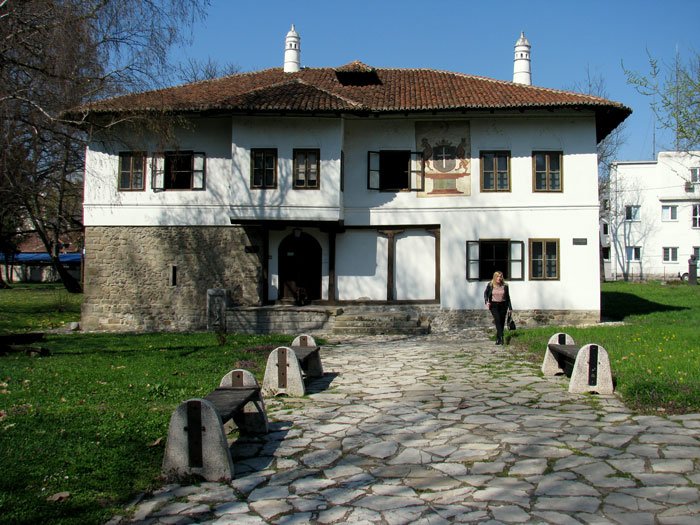
And one more thing – the old house that is now home to the National Museum was built in 1835 as the house of Jovan Obrenović, brother of the famous 19th-century Serbian ruler Miloš. Hence, the real feel of the old city house, with the Obrenović’s coat of arms in color on the façade. This is the only preserved coat of arms of this kind in Serbia! The museum is divided into different sections – from the Neolithic to the medieval, one dedicated to Ovčar-Kablar monasteries, and another to the period of 1804-1914.
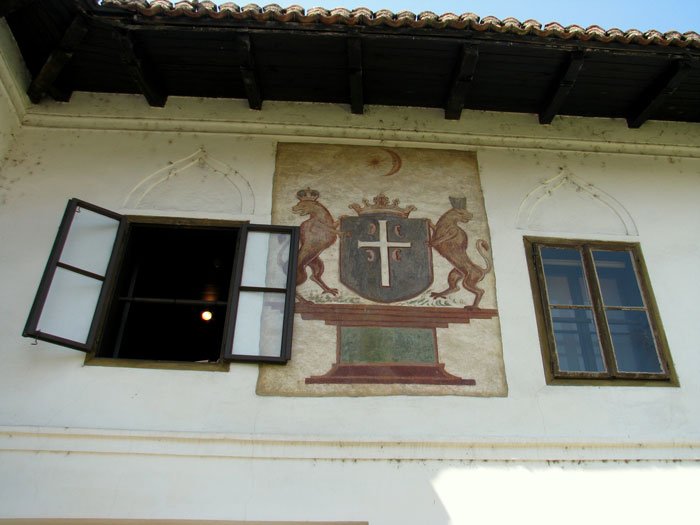
Mrs. Zorana tells us how visitors from Germany are always thrilled to see old swords made by Germans and Austrians for famous Serbs, and how Russians or Bulgarians tend to stand by decorations coming from their countries. Also, there was a visitor from China who wanted to write a few words in the Book of Impressions when he found another inscription there, made by the Shanghai school principal – the school he attended!
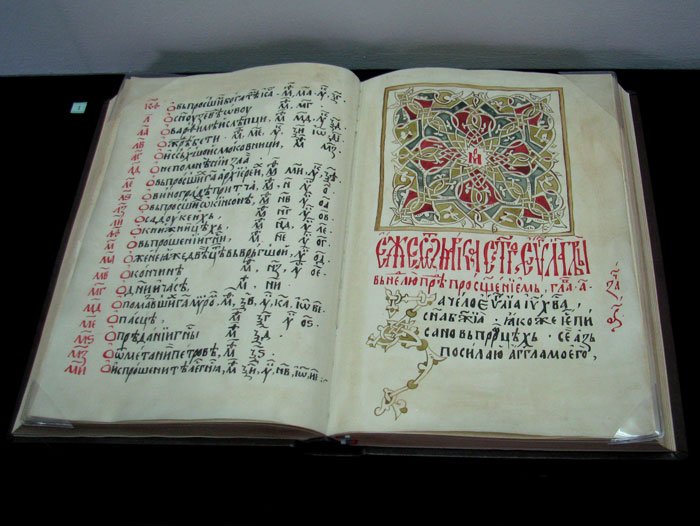
Čačak is also proud to be the hometown of the famous Serbian artist Nadežda Petrović. There is an old building that was erected at the beginning of the 20th century by wives of Čačak noblemen. They opened a school for girls, which was a curiosity at the time. The building was turned into the Nadežda Petrović Gallery in 1961. One can see her work here, but there are always other temporary exhibitions as well.
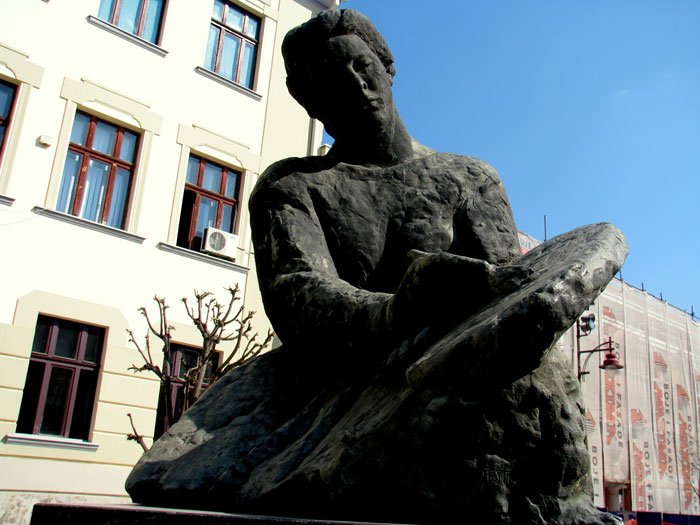
When walking by the high school, stop by the sculpture in front of it. That is the Nadežda monument by the famous sculptor Ivan Meštrović. He was working in the US when he was asked to make this sculpture of his dear friend and colleague.
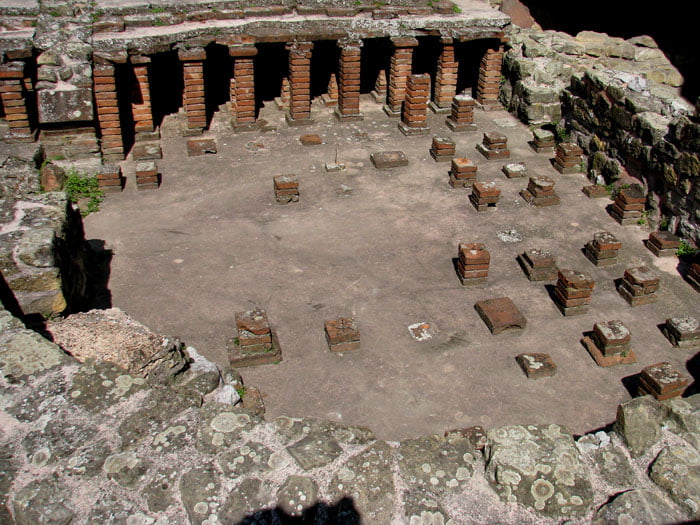
Another step back in time awaits at the Roman Baths. At the very center of the city, next to the pedestrian area, there are thermal bathroom remains. Proclaimed as a cultural monument, these Roman Baths date to the end of the 3rd and the beginning of the 4th century. Various bathroom premises are displayed where you can learn more about the water heating system. I spent the night at the charming Belgrade Hotel (highly recommend, click the link), and Roman Baths were literally around the corner.
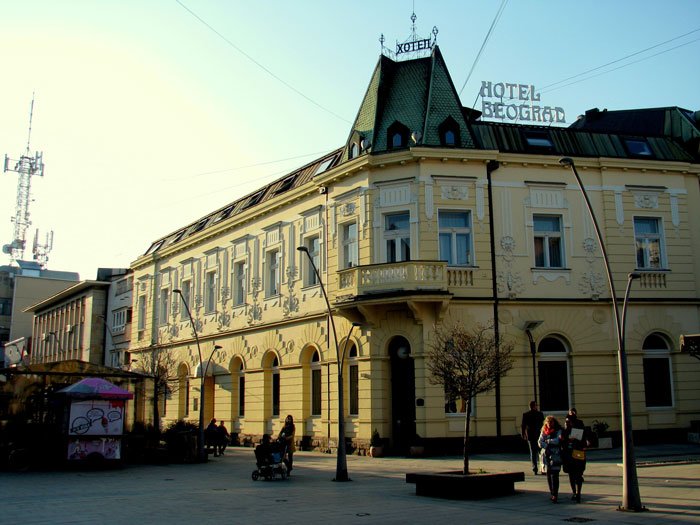
Čačak is also known for a few music festivals, including the traditional Fife Festival in Prislonica village and the popular rock music festival ‘Priča’ (Story in Serbian). The latter began in 2012 and was held for the first time in front of the Serbian Pub, whose owners actually started the whole thing. From eight bands and 2,000 people in those days, ‘Priča’ became a true manifestation, not only with huge stages and an audience of 8,000 people but with programs for young bands, kids’ carnival, numerous exhibitions, and literary evenings that accompany the event. The city becomes a hive during the festival!
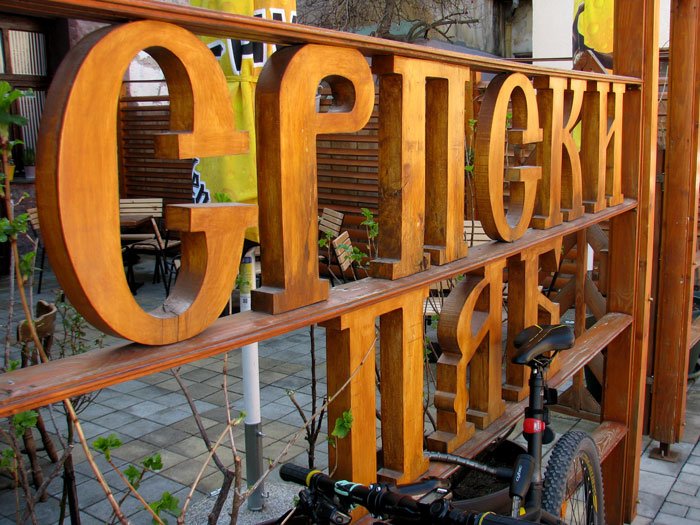
Ovčar-Kablar Gorge
Located in West Serbia, this gorge separates the Šumadija area from the Dragačevo valley. The focal points are the mountains of Ovčar (985 meters high) and Kablar (885), while the gorge is adorned with West Morava river meanders and thermal springs. Due to its natural characteristics, the gorge has been declared as an Area of Exceptional Qualities. It stretches across 2,250 hectares, 1,700 of which belongs to the Čačak territory.
This exceptional area is also home to 10 medieval monasteries, which is why the gorge is often referred to as the ‘Serbian Mount Athos’.
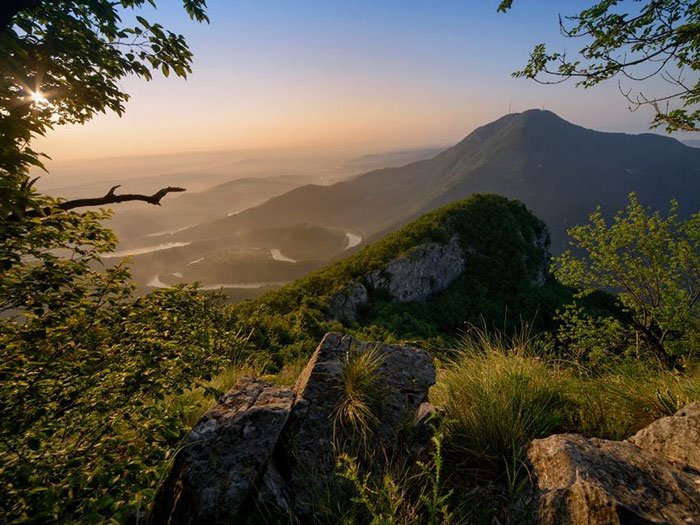
When exploring things to do in Čačak, this gorge is an absolute must-see. Since the main road from Belgrade passes by, travelers tend to stop here for a short break, not even knowing what lies behind those small lakes and how the West Morava curves just a few kilometers away!
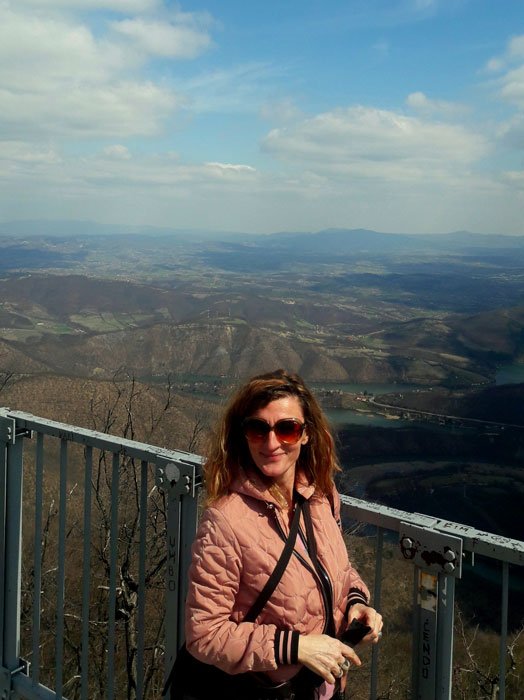
While we were climbing the slopes of Kablar to the highest viewpoint at an altitude of 881 meters, Goran from the Tourism Organization explained that there were five climbing trails here. (Three more are on Ovčar mountain and two on Debela Gora hill.) The peak of Kablar can also be reached by bicycle tracks. You can even drive up to within 800 meters of the top. One of the seven levels of Serbian Trekking League competition was held here in April 2019 for the first time, along with the mountain race organized by the Serbian Athletic Society.
I tried to remember various details related to flora and fauna while Goran was saying that there are 700 herbal species here, which makes up a quarter of all species in Serbia. Half of all daily butterfly species and birds live here in the protected area, on these 2,250 hectares. Another thing I learned was that hornbeams were frequent here, that beech trees “prefer northern slopes with more moisture and less sun,” and that ravens are extremely intelligent and often “disturb nests of grey falcons.” We stumbled upon a bitter oak tree almost 300 years old, the oldest of its kind in Serbia. One can also enjoy 23 orchid species blooming at the beginning of May…
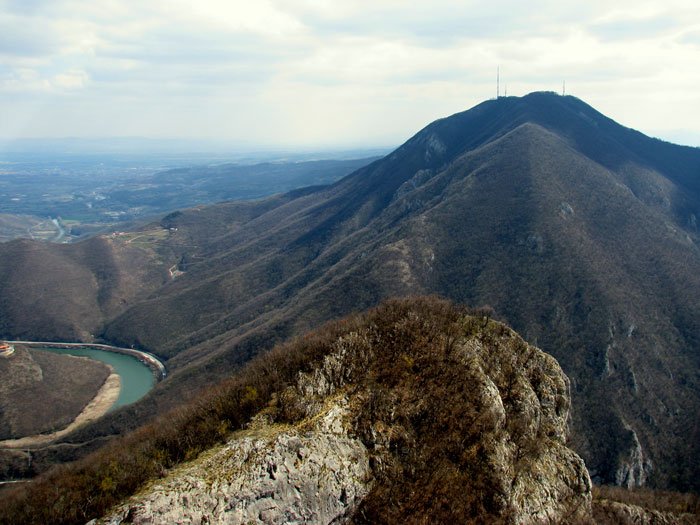
But when we finally reached the top and caught a glimpse of the curving West Morava river, I almost forgot all the things Goran said! This is the popular view of the Serbian meanders with the panorama of Čačak in the background. And there, on the opposite mountain of Ovčar, Sretenje Monastery emerges. What a view! (I had the opportunity to visit Kablar several times later during summer, when it’s completely green. Take a look at the text Western Serbia, Places to Visit, for example.)
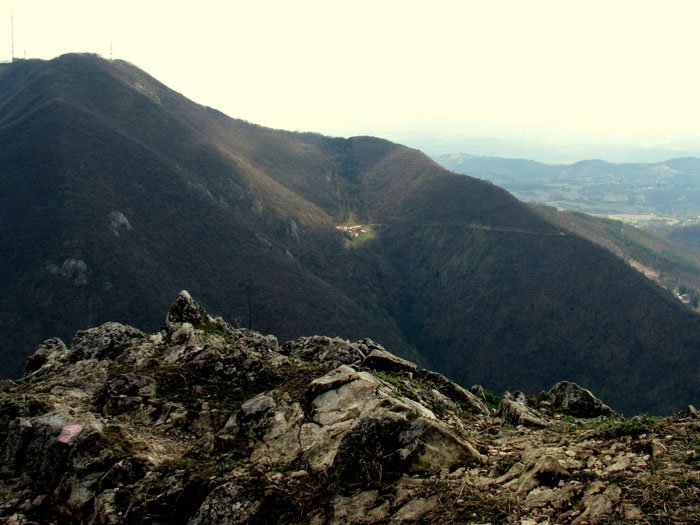
While strolling along Kablar, you will see the cave high up in the rock. It’s called Turčinovac and it’s pretty hard to reach. It is believed that you can exit the cave on the other side of the hill. This is where Serbs took refuge for centuries, fleeing from the Ottomans, and there are a few interesting stories related to that period. They say that Turks made a ladder and climbed all the way up to the entrance. A woman was making bread in the cave at the time. When she saw them, she hit the first soldier with the dough she held in her hands. It made him lose his balance and fall, pulling his comrades and the ladder itself into the abyss. Hence the name of the cave.
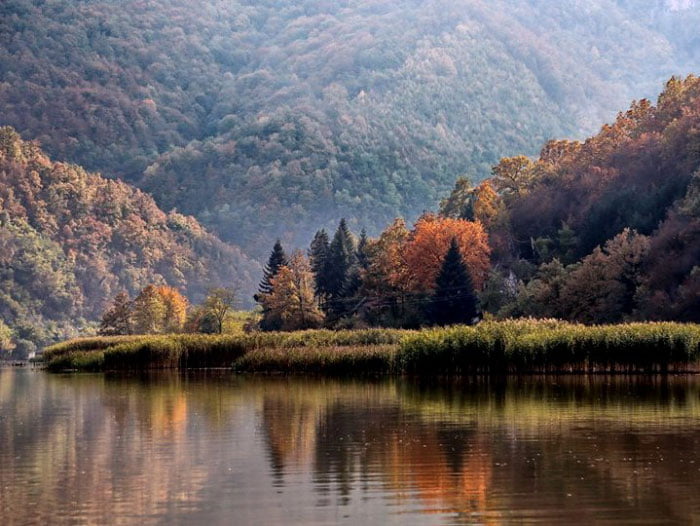
There is a cross that sticks out of another cave nearby. This is where the Savinje church is, dedicated to St. Sava, Serbian prince and Orthodox monk, because it is believed that it was his hiding place where his healing spring was. It’s a small church of only 10 square meters, on terrain so steep that no cattle can climb up. That is why monks took up all the materials for building the small church by themselves. There are still Orthodox services held here on St. Sava religious holidays, and monks and worshipers continue to make the climb.
The Ovčar-Kablar Gorge gave refuge to numerous medieval Orthodox temples, and so, nowadays, there are 10 monasteries and 2 holy places. It is believed that monks were escaping the Ottomans, trying to find a safe place for their relics, and that is how this ‘Serbian Mount Athos’ came to life. Just look at the remote spots where monasteries are situated, and you will get the picture.
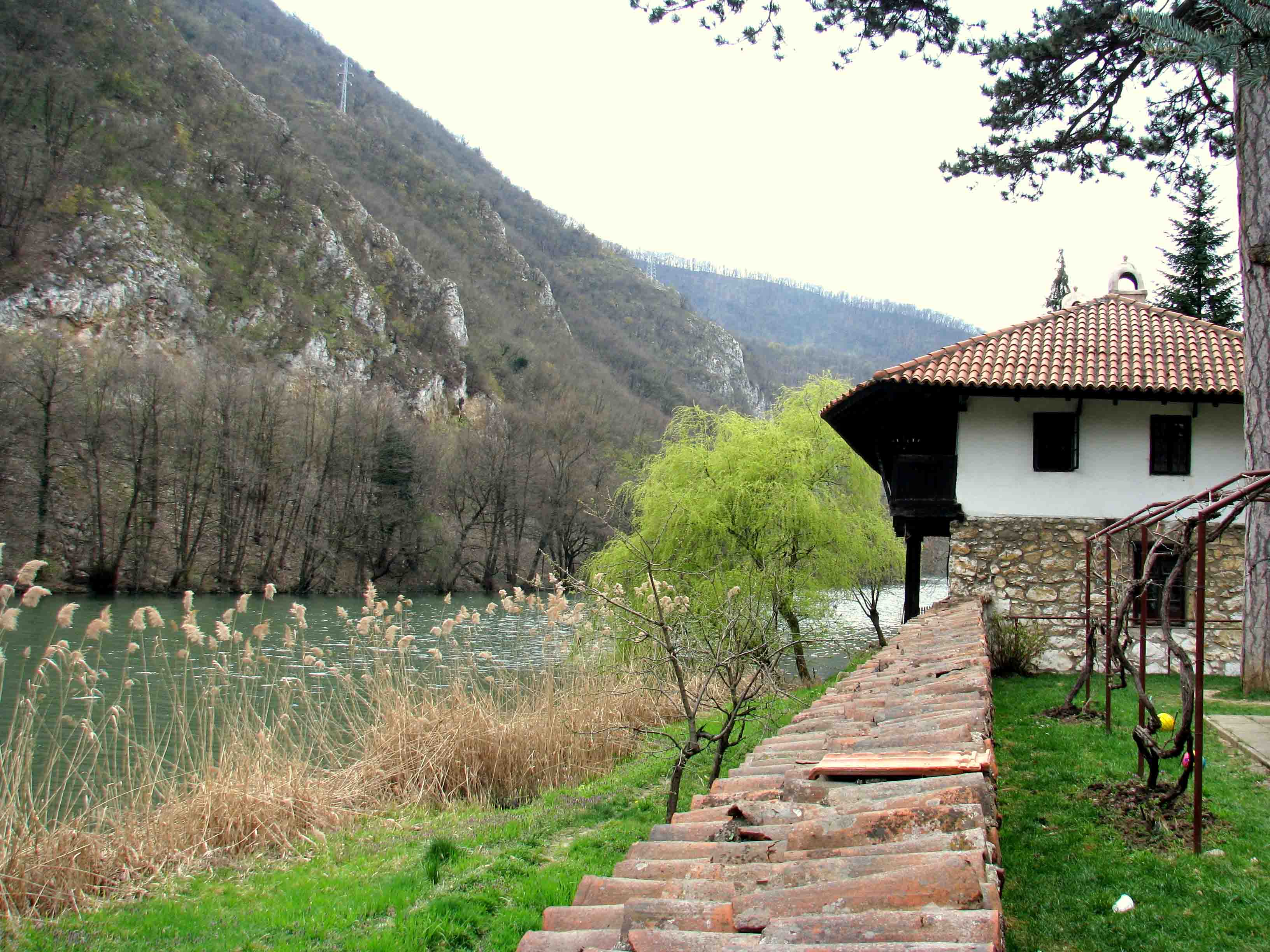
Pick a few of the monasteries to visit and make sure to put them on your things to do in Čačak list. I went to see Blagoveštenje and Nikolje, while Jovanje was emerging from one of the hills surrounded by the West Morava’s curving flow, which made it look like a peninsula. The one next to it, that looks like an island, is called Pejica, but it’s also known as the ‘Serbian Bled’.
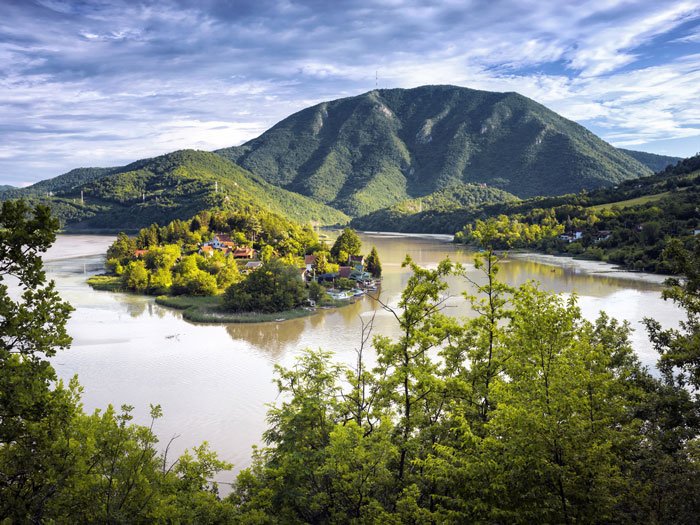
Blagovestenje was built in 1602 and fresco-painted in the first half of the 17th century. The monastery is renowned for the 1602 Virgin fresco that is believed to perform miracles. The other monastery – Nikolje was even more interesting, being on the bank of the river and home to Serbian ruler Miloš Obrenović’s house. You can even see the exact windows of the Obrenović’s chamber. He spent time here while getting away from the Ottomans. His wife Ljubica was here for a whole year with their children. Their five-year-old son Petar was buried here after getting sick on the road.
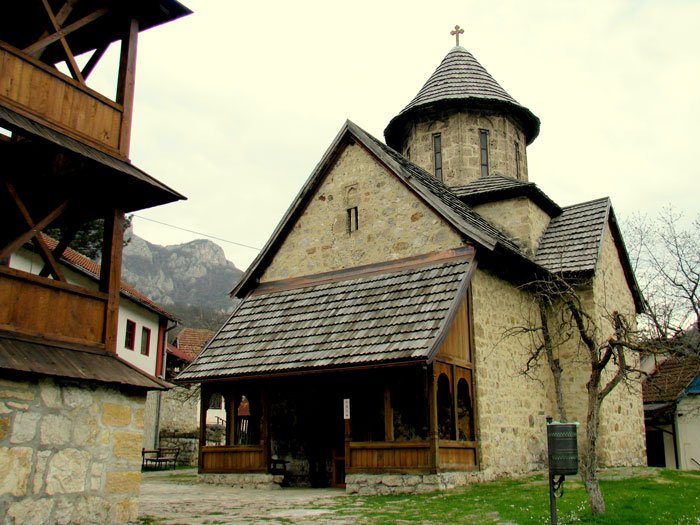
While I learn how the church is authentic, that it was mentioned in Turkish documents dating from the 15th century, is special for having frescos on the outside walls as well as a rare one inside, I was also drawn to the old pine tree in the courtyard. They say that if you go around it three times, make a wish, and kiss the small icon hanging from the tree, it will most certainly come true. If it doesn’t, Goran was joking: “You probably didn’t take the right direction.” Still, when you do come here, it seems only natural to take those few circles. “Who knows, right!”
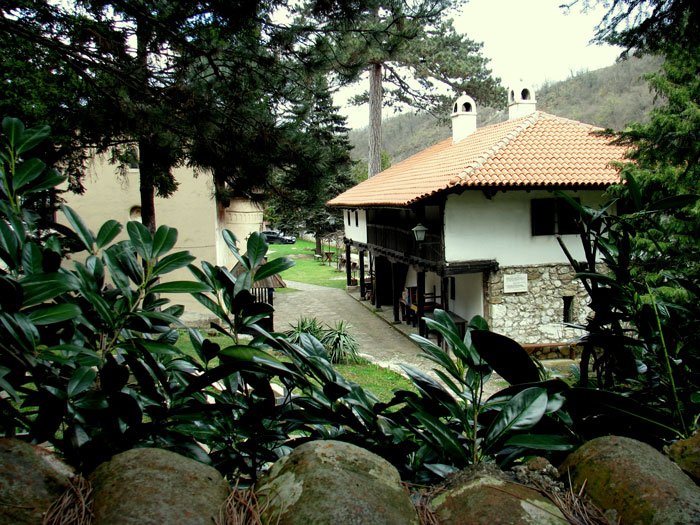
Atomska Banja Serbia
One of the fascinating things to do in Čačak is visiting Atomska Banja Gornja Trepča, located 20 km from Čačak (and 130 from Belgrade). It is tucked between hills covered with forests at an altitude of 460 meters. The thermo-mineral water of 29.8 degrees Celsius is quite rare and specific for its chemical characteristics, given that it has exceptional healing properties for treating neurological and muscle tissues. It is used for medical rehabilitation of those with neurological problems, especially multiple sclerosis, rheumatism, as well as gastrointestinal tract and peripheral blood vessel conditions.
The special rehabilitation hospital consists of several buildings, while the Medical Center ‘Vujan,’ which opened in 2012, is fully equipped with all necessary medical facilities.
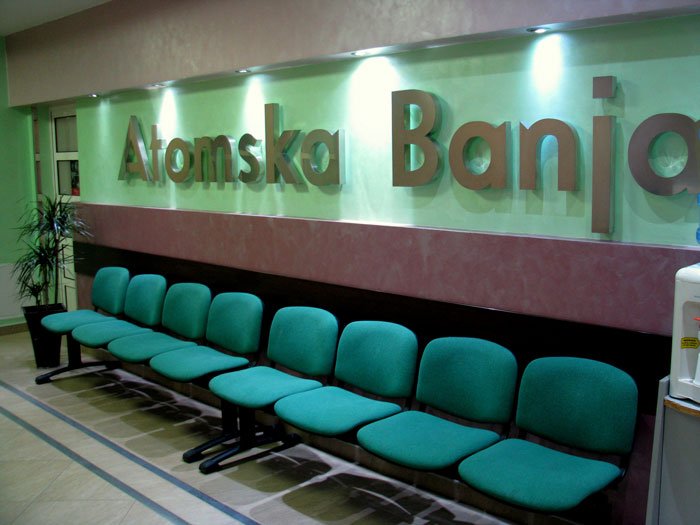
Let me share a few more words about the spas – Ovčar and Atomska, where I had the opportunity to spend a couple of nights. It’s possible to go for a massage or take a walk in Atomska Banja (banja meaning spa in Serbian) if you’re not there for therapy purposes. The Medical Center will provide all necessary information, along with accommodation options. Last year, they reported more than 130,000 bookings. (Here’s a suggestion for accommodation in Gornja Trepča, click on the link.)
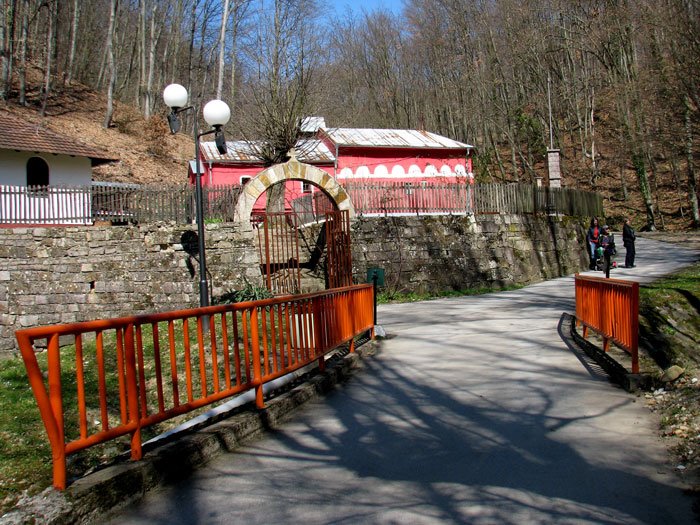
On the way to Atomska Banja, make sure to stop by the Equestrian Club ‘Griva’. Not only can you book horseback riding tours or enroll your kid in a riding school, but the club also collaborates with the medical center in providing special therapy for motor skills improvement.
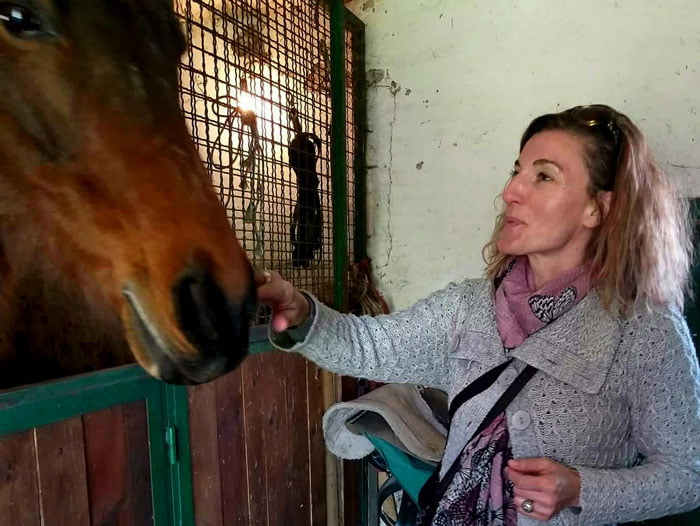
Also, right before reaching the spa center, there’s the Gordana and Cane Minić household, better known as the ‘Minić’s Rakija House‘. In this traditional setting, Mr. Minić will gladly offer one of his 32 rakija varieties – made from plums and pears, or even banana and cabbage. He has been rewarded numerous times at state and regional competitions for the quality of rakija he produces, and he will dare you to try “the one you think you hate, because you will love his version”. (And he was right!)
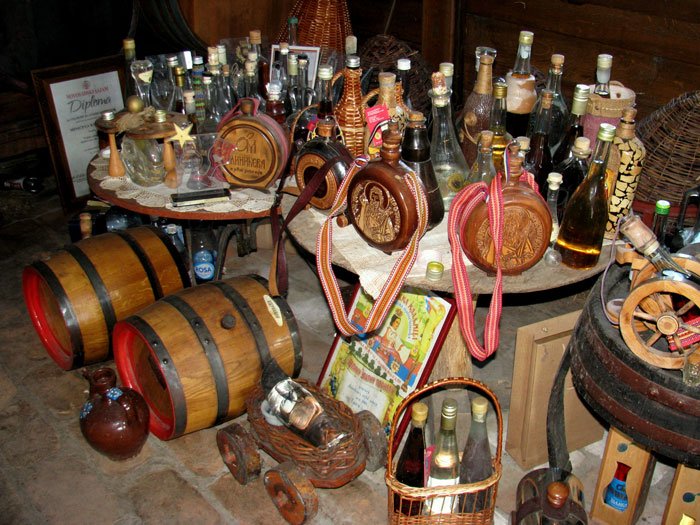
Ovčar Banja Serbia
What makes this spa special is its location in the midst of the Area of Exceptional Qualities of the Ovčar-Kablar Gorge. There is evidence supporting claims that Ovčar banja’s healing waters were used during Roman times, as well as in medieval Serbia and during Ottoman rule.
The thermal waters reach 35 to 38 degrees Celsius and have healing properties related to rheumatic diseases, spondylosis, arthritis, sports injuries, and various skin problems.
When visiting Ovčar banja, make sure to plunge into the thermal waters swimming pool – you can do this between two long Kablar walks. Also, try the so-called ‘wellness breakfast’ at the Wellness Center Kablar (you’ll find numerous dishes on your plate, huge portions, and warm crispy pastry).
(Check out this interesting accommodation, you’ll be pleasantly surprised – click here. If you’d like to stay right on the water, you might enjoy this vacation house as well.)
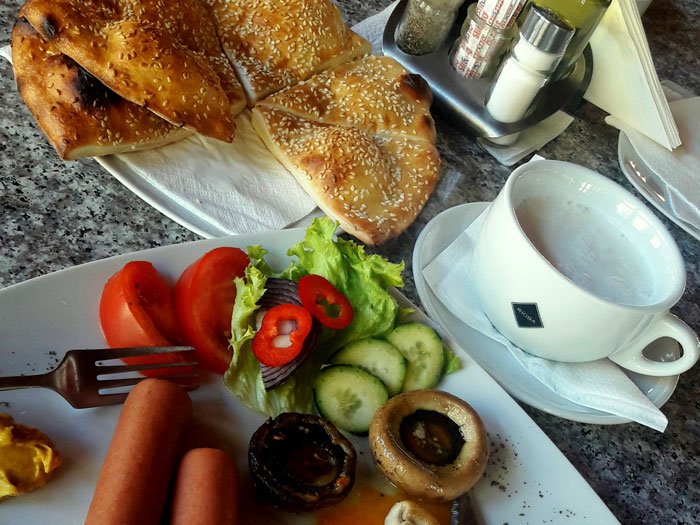
One more interesting fact – did you know that Ovčar Banja should actually be called Kablar Banja? Here’s why: the West Morava river represents the line between the territory of Čačak and Lučani, between lands that belong to Blagoveštenje and Sretenje monastery, and also between the mountains of Ovčar and Kablar. At some point, in 1896, the river changed its flow, and so, healing springs that were on the Ovčar side now ‘moved’ to the slopes of Kablar. Nevertheless, the settlement is still called Ovčar Banja.
Next from Serbia: GUČA SERBIA, APART FROM THE TRUMPET FESTIVAL
The full THINGS TO DO IN SERBIA section
PIN IT FOR LATER:
If you need a freelance travel writer or you would like to see your country, city, flight, etc., presented on the blog, drop me an email.
Find our more on Freelance Travel Writer page.
I am looking forward to working with you.
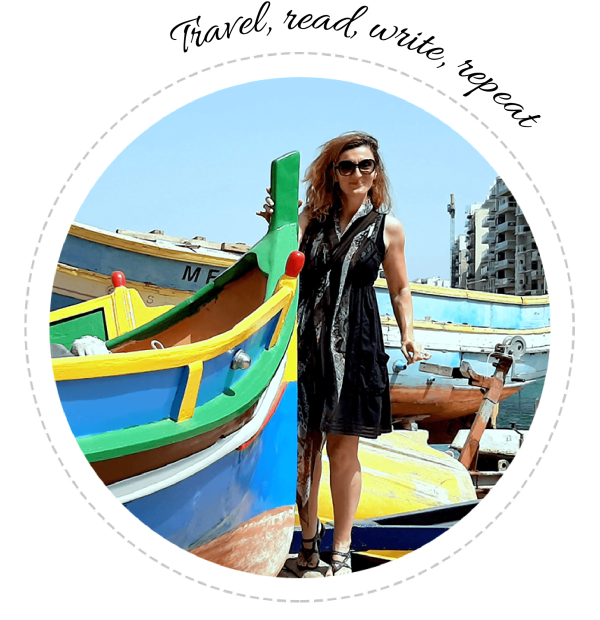



26 responses
Love how informative your post is. For those who never heard of the city, this is just the guide they’d need. Would love to visit those medieval monasteries – so many of them in such a small area, amazing! ????
Thank you for your kind words. <3
Cacak is not that far from Belgrade, which makes it easy to visit, and there really is so much to see in the area.
This is packed with information, and I am loving it! Such an interesting city, and I’d love to visit one day. I loved learning about the church bells that were buried in the ground, stories like that always intrigue me! 🙂
There are so many stories like that one. I’m also interested in learning more when I stumble upon them.
I’m sure you’d love the city, thanks. 🙂
I know so little about Servia in General but Cacak looks like a beautiful place to explore for sure. In particular, I personally would love to get there during the warmer season to explore the entire Ovcar-Kablar Gorge. The way the West Morava river winds and cuts through the gorge looks so beautiful to me. Plus I know Darcee & I would love spending time exploring the few monastaries there that are open to the public. I love the whole outdoor area. You in particular sold me on the idea of swimming in the thermal part of the Ovcar!
Oh, the scenery is totally green when coming during summer. The view of the gorge is spectacular. I know you’d love it.
Monasteries are mostly open to public and not crowded. It can even happen that it’s peaceful and quiet like there’s nobody there. Still, monks would be more than happy to let you in to see the interior.
And yes, there is the swimming pool with thermal waters in Ovcar Banja you can indulge in. 🙂
Oh my gosh – the history in this area looks abosolutely incredible. I had no idea there was a roman bath there! and that wellness breakfast looks very tempting indeed…
I know, right! There is so much to explore here.
Thanks. 🙂
I am continuously amazed by how old cities are as compared to the uSA (my home). A town that dates back to 1408 is quite impressive. Your pictures of the Ovcar Kablar Gorge are incredible. I’d love to visit Atomska Banja for spa therapy and a relaxing time. Thank you for the introduction to this unique town in serbia.
Serbia is full of history and some pretty old monuments. There are monasteries from the Medieval times here, right in the Ovcar-Kablar gorge. 🙂
I can’t say that Serbia is on my radar for a future visit, but if i do decide to head that way this guide certainly gices me plenty of ideas for things to do!
So glad the post can come handy if needed, thanks. 🙂
I grew up in the next-door country, Romania. I can’t believe how similar the architecture is in these two countries, starting with the churches and ending with the country houses. We wanted to visit Serbia two years ago, when we did a road trip through the Balkans, but time was too short. I’ll add cacak to my list for next time.
Hey, so nice to hear that. Would love to hear your impressions when you see all this in person. 🙂
I love all the history in cacak especially the roman ruins and monastery! And I would love to hike around the gorge with such an incredible setting!
You’d have great time hiking around the area. There are some stunning landscapes to admire here. 🙂
Serbia is still on the travel wish list for us. So great to visit when it was sunny and blooming. How great to get a tour of the National Museum by the curator. I am always surprised when we find Roman ruins so far from Rome. The Ovcar and Kablar Gorge looks absolutely stunning. I may not want to visit all of those monasteries. But I definitely would want those views.
The Roman Empire was so vast, it’s hard to imagine sometimes that all these lands were incorporated into one country.
I loved the views as well. 🙂 Thanks! <3
Wow I didn’t know that Serbia can be this picturesque. I’d love to visit this country one of these days. This is probably a very scenic road trip from Belgrade. It’s quite far but with great company and good season (looks like spring wins) it will be perfect.
If you ever take that road trip, I would love to hear your impression on the surrounding scenery. 🙂
Interesting history about Serbian Mount Athos. Monks trying to flee… how similar it sounds. This is common in several stories of temple and monastery. Looks like the spas there are very popular, very impressive statistics. Hope I can visit some day.
The spas are popular because there are so many natural healing waters in Serbia that it would just be a pity to go to waste. People found a good way to use it and enjoy its benefits.
Thanks, Indrani. 🙂
Hiya! I simply would like to give a huge thumbs up for the great information you’ve here on this post. I might be coming back to your blog for extra soon.
Thank you, feel free to browse around. 🙂
Beautiful place! I love historical and rustic places. I like that Roman Bath remains in your photographs. hoping to visit in the future.
That Roman bath is especially interesting being in the very center of the city.
Hope you do, would love to hear your impressions. Thanks. 🙂